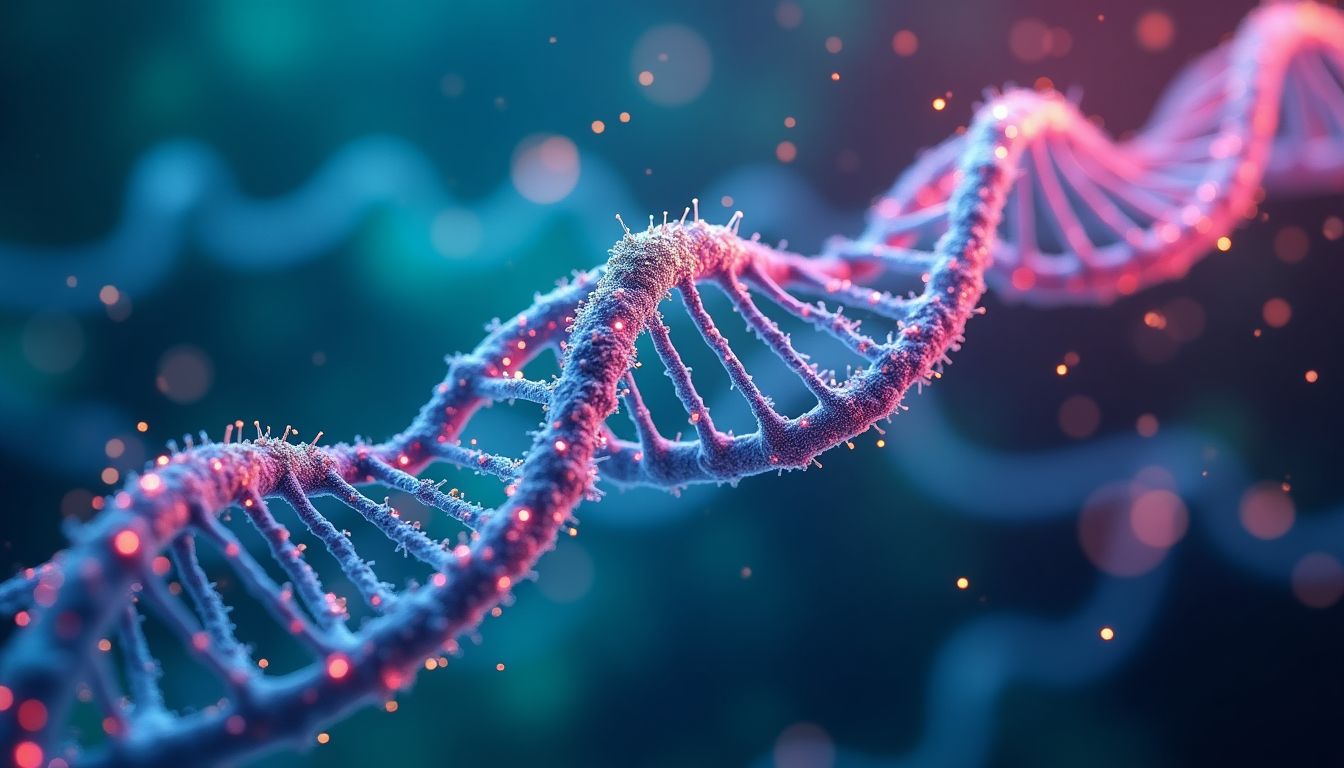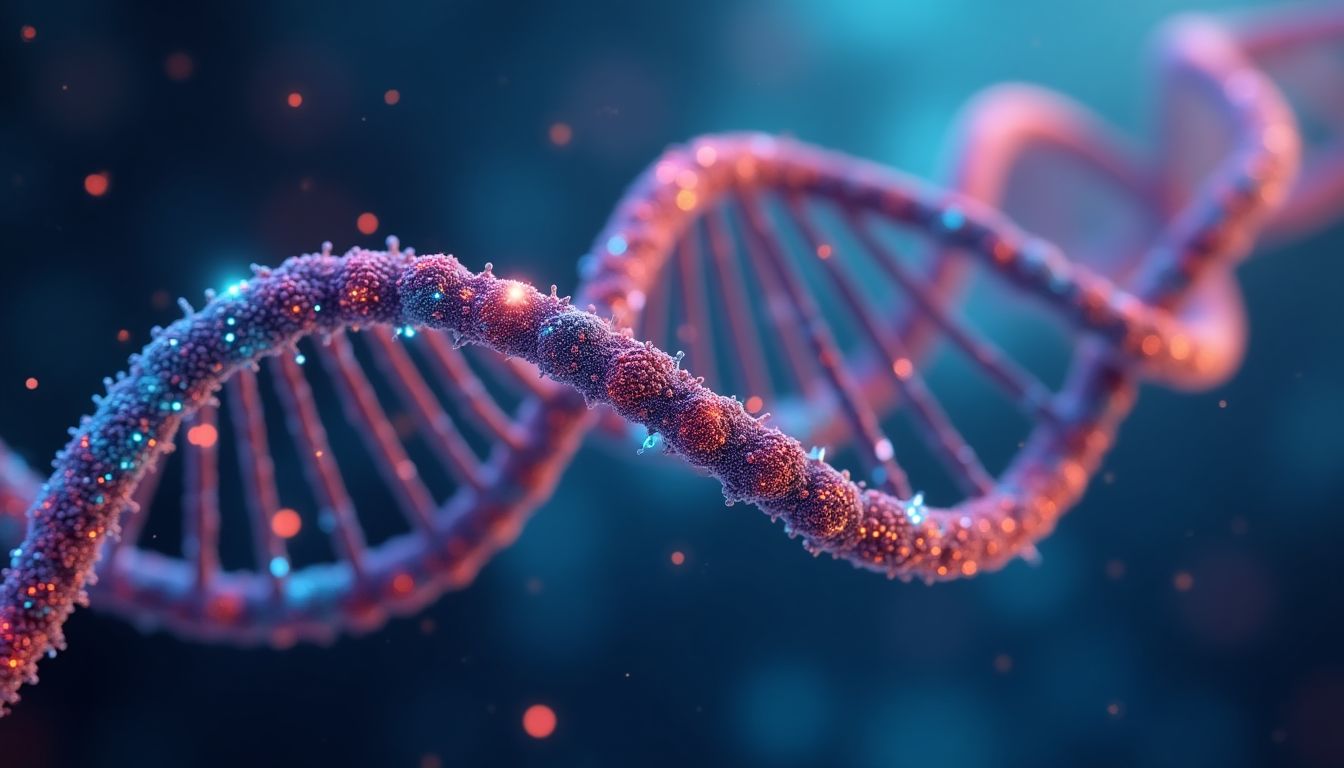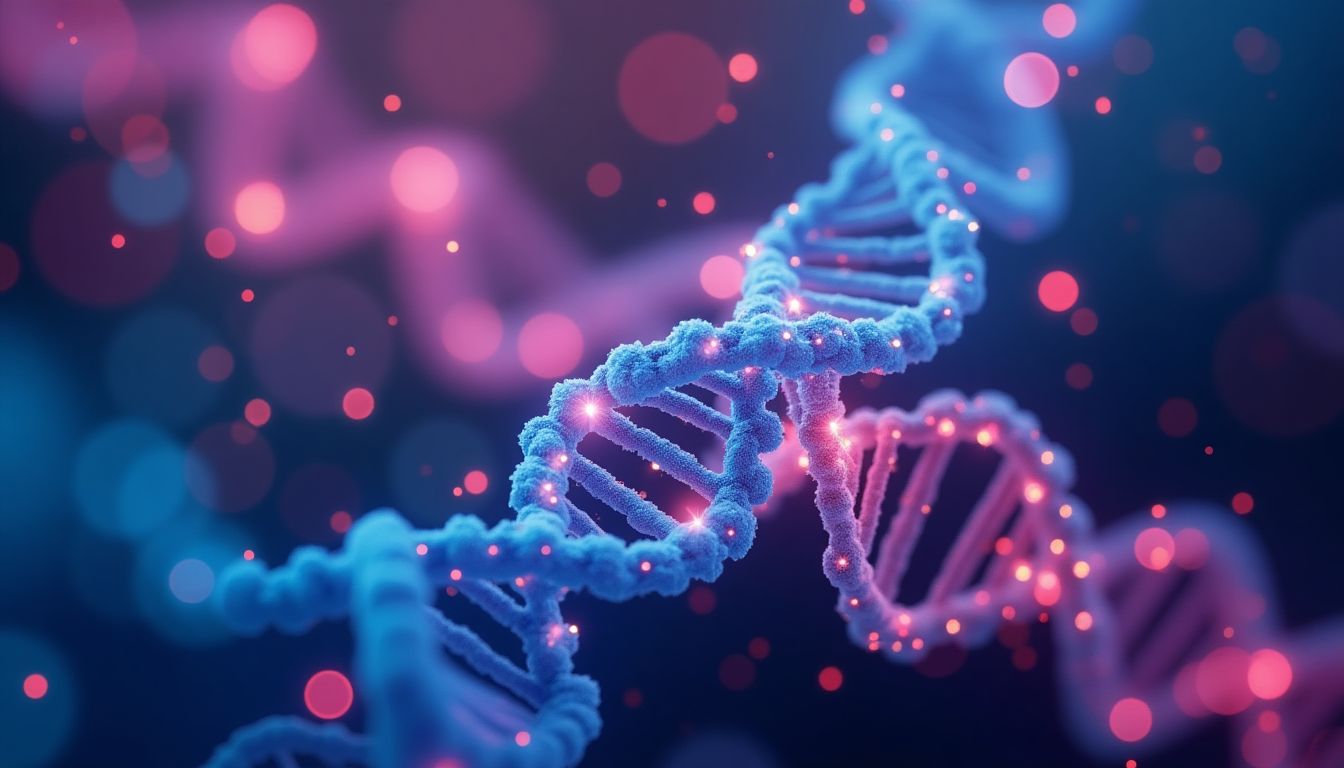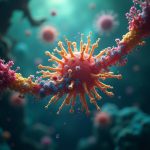Introduction: The Fight Against Cancer in the Age of AI
The thing about smart people is that they seem like crazy people to dumb people. In the quest to conquer the complexities of cancer, what if the smart people are not only those in lab coats but also the algorithms whirring away in computers? Just like how Sherlock Holmes solved mysteries using sharp reasoning and attention to detail, artificial intelligence (AI) is now unraveling the enigma of tumors at the DNA level. The marriage of AI and oncology isn't just a techy hook; it’s a technological revolution that offers a fresh perspective on fighting an age-old adversary.
What if I told you that the future of cancer treatment doesn't involve just highly trained oncologists and exhaustive surgeries, but AI algorithms turbocharging the medical field? With the advent of these advanced technologies, researchers such as Stephen Hawking, Shinya Yamanaka, and Atul Gawande have hinted at the potential these innovations hold. They propose that using AI as a partner in medicine could mean the difference between success and failure in curtailing cancer's lethal progression, seeking the humane balance of saving lives and preserving identity. Embracing this technology might just lead us to an era where we can outsmart cancer in much the same way a clever sleuth outwits a criminal mastermind.
Let’s venture beyond the mundane and peek into how AI, rather than merely fighting cancer with brute force, might instead approach it with surgical precision!
1. The Science of Targeting Tumors at the DNA Level
Where does it all begin? Understanding the underpinnings of cancer starts with DNA—the genetic blueprint that might just hold the key to creating life or, in this case, its untimely demise. Imagine it; our DNA isn’t just some string of code; it's more like the instructions to build a spaceship that can reach the distant galaxies. But, like most genius plans, it can go horribly wrong!
1.1 Overview of DNA mutations and cancer
To understand how AI can treat cancer, we need to grasp the role of mutations. Think of DNA as a long novel that tells our body how to operate. Each gene is a paragraph filled with instructions. Now, if a sneaky editor changes a few words, well, that story could end up quite differently. These changes, known as mutations, are often at the heart of cancer. According to the National Cancer Institute, mutations can arise from various factors, including sunlight, tobacco smoke, or even sheer bad luck. What’s alarming is that not all mutations are bad; some can fuel the aggressive growth of tumors.
1.2 Mechanisms of tumor formation and growth
When these mutations occur, they can disrupt normal cellular functions, leading cells to replicate uncontrollably. Think of cancer as a party that gets out of hand; one uninvited guest (a mutated cell) shows up, and suddenly there are too many people, too much noise, and chaos that no one can control! Tumors can either be benign (the social drinkers) or malignant (the wild partiers that refuse to leave), with the latter being the more dangerous ones. AI seeks to recognize the patterns of these rowdy cells and help us bring order to the chaos.
1.3 Traditional approaches to targeting cancer
Traditionally, the approach to combatting cancer has been akin to using a sledgehammer to hang a picture: effective but definitely overkill! Treatments like chemotherapy and radiation aim to wipe out those malignant cells, but unfortunately, they indiscriminately damage healthy tissues as well—think of it as carpet-bombing a neighborhood to get rid of a pesky raccoon. Thankfully, AI is here to assist us in finding a targeted missile approach to this delicate problem, minimizing collateral damage.
2. The Role of Artificial Intelligence in Oncology
Now that we've set the stage about the science behind DNA targeting, let’s dive into a topic that's transforming the landscape of cancer treatment—Artificial Intelligence (AI). Imagine having a super-smart assistant that doesn’t require coffee breaks or bathroom trips, tirelessly analyzing data, and figuring out the best ways to tackle cancer! That's what AI brings to the table. It’s time to explore how these algorithms are stepping into oncology, offering hope in the fight against cancer.
2.1 Introduction to AI and Machine Learning in Medicine
So, what exactly is AI, and how does it fit into medicine? At its core, Artificial Intelligence uses computers to simulate human intelligence. Think of machine learning as the brainy kid in class who learns from experience. Instead of being simply programmed with fixed rules, ML gets better over time as it processes more data. A classic example of AI in medicine is IBM's Watson, which can sift through medical literature at lightning speed and identify potential treatment options for patients. This advanced technology sounds like something out of a sci-fi movie, right?
2.2 Current Applications of AI in Cancer Research
AI is not just a wallflower at the dance—it's dancing the night away! Researchers are using AI to analyze tons of data from clinical trials in order to find patterns that can lead to better treatments. Want proof? Consider the work being done by Tempus, a technology company using AI to make cancer care more personalized by analyzing a patient’s genetic information together with clinical data. It’s like giving oncologists a crystal ball to see into the future of treatment—minus the fortune teller’s hat.
2.3 Case Studies Showcasing AI Effectiveness Against Specific Cancers
Let’s look at some real-world success stories where AI has made a splash in treating cancer. For instance, the collaboration between Google’s DeepMind and the NHS in the UK has shown fascinating results in detecting breast cancer from mammograms. This partnership demonstrates that AI can detect signs of cancer more accurately than human radiologists in some cases. It’s not saying that doctors are now obsolete; rather, it shows how AI can serve as an invaluable ally in the battle against cancer!
3. Precision Therapeutics: Designing AI-Driven Treatments
Now, we take a closer look at how AI isn’t just a tool for analyzing data but is also revolutionizing the way we design treatments for cancer. We’re talking about personalized medicine—imagine tailoring your treatment as carefully as a bespoke suit. This precision approach allows for therapies that target the unique genetic profile of a person’s cancer, transforming the way we approach treatment.
3.1 Customizing Treatments Through Genetic Profiling
Genetic profiling sounds fancy, doesn’t it? In simpler terms, it’s like figuring out each cancer’s fingerprint. Some cancers carry unique mutations that make them behave differently. Companies like Foundation Medicine have developed tests that analyze genetic alterations in tumors, helping doctors choose the best personalized therapies. It’s like finding the secret password to a super-secret club that only the cancer knows about! And once we have that password, we can unlock the door to more effective treatments.
3.2 Algorithms That Predict Patient Response
Imagine if doctors had a magic eight ball that accurately predicted how their patients would respond to different treatments—well, algorithms are kind of like that! By analyzing previous patient data and treatment outcomes, AI can predict which therapies are likely to be the most effective for specific individuals. For example, GRAIL is developing blood tests that can detect cancer early, giving patients a better shot at successful treatment. It’s like getting a heads-up before the big game!
3.3 Integration of AI with Existing Therapeutic Modalities (e.g., Immunotherapy)
But wait, there’s more! AI isn’t just playing solo; it’s harmonizing with other forms of therapy, like immunotherapy. Traditional treatments can be pretty one-size-fits-all, and that’s often not effective. By combining AI with methods like CAR T-cell therapy, doctors can better understand how to modify a patient’s immune system to fight cancer more effectively. Think of it as upgrading your weaponry—you wouldn’t go into battle with last year’s technology, would you?
4. The Ethical Landscape of AI in Cancer Treatment
Artificial Intelligence is not just transforming how we treat cancer; it also raises a ton of important ethical questions. As we dive into the future where algorithms are involved in diagnosing and treating diseases, we find ourselves in uncharted waters. Let’s tackle some of these concerns head-on.
4.1 Patient Consent and Data Privacy Concerns
When it comes to technology handling sensitive health information, privacy is crucial. Healthcare providers must ensure that patients are fully informed about how their data will be used. Here’s the breakdown:
- Informed Consent: Patients should know what they're signing up for concerning AI treatments.
- Data Security: There must be strict safeguards to protect personal health data from breaches.
- Transparency: Algorithms should be explainable so that patients understand the role of AI in their treatment.
4.2 Bias in AI Algorithms: Addressing Potential Disparities in Care
AI is only as good as the data it learns from. If that data is biased, it can lead to unfair treatment outcomes. This can disproportionately affect marginalized groups. To combat this:
- Collect Diverse Data: AI systems must be trained on samples that reflect the diverse populations they serve.
- Regular Audits: Ongoing assessments must be performed to ensure that algorithms work equally well across different demographics.
- Community Input: Engage stakeholders from diverse backgrounds in the development and evaluation of AI systems.
4.3 Regulatory Frameworks Governing the Use of AI in Healthcare
Effective regulations can help navigate the complex landscape of AI in healthcare. Governments and organizations need a clear set of rules to guide the development and deployment of AI tools. Here are some areas regulations should address:
- Safety Standards: Set guidelines to guarantee the efficacy and safety of AI-driven treatments.
- Ethical Guidelines: Create protocols to ensure AI deployment respects patient rights and well-being.
- Accountability: Define who is responsible when AI makes a mistake in a clinical decision.
5. Future Possibilities: Where AI and Cancer Research are Headed
As we look ahead, the intersection of AI and cancer therapy seems bright and filled with potential. Advancements in technology promise to shape the future significantly, enabling new possibilities in how we approach treatment.
5.1 Emerging Trends in AI Technology
Several trends give us a glimpse of what's to come in this field:
- Personalized Treatment Plans: AI will continue to allow for more tailored therapies based on individual genetic profiles.
- Real-time Monitoring: Wearables and mobile devices powered by AI will monitor patients, adjusting treatment as needed.
- Predictive Analytics: AI systems will use historical data to forecast cancer risks and suggest preventive measures.
5.2 Predictions for AI’s Impact on Cancer Treatment Over the Next Decade
Here's a bold prediction: in the next ten years, AI could transform how we manage cancer. This may include:
- Faster Diagnoses: Algorithms might reduce the time taken for diagnosis, enabling quicker treatment.
- Enhanced Drug Development: AI could play a key role in identifying promising candidates for clinical trials.
- Global Access: Providing AI tools could allow underserved populations access to advanced treatment protocols.
5.3 The Collaborative Role of Scientists, Technologists, and Healthcare Providers
The fight against cancer will require teamwork. Scientists, AI experts, and healthcare providers must collaborate closely to maximize the potential of AI. This means:
- Cross-disciplinary Partnerships: Forming teams that include oncologists, data scientists, and ethicists to create comprehensive solutions.
- Data Sharing: Establishing platforms for shared data access to enrich AI algorithms.
- Public Engagement: Educating the public about AI in healthcare, fostering trust and understanding.
6. AI Solutions: A Roadmap to Precision Therapy
It's time to roll up our sleeves and dig into the nuts and bolts of an artificial intelligence (AI) system designed to target cancer at the DNA level. Collaboration among multiple stakeholders—oncologists, data scientists, and bioinformaticians—is vital in this venture. In this section, we'll outline three crucial components for creating a robust and effective AI that can not only analyze genetic data but also personalize cancer therapies.
6.1 Bioinformatics Tools for Data Analysis
Bioinformatics plays a pivotal role in managing the massive datasets generated from genomic sequencing. The use of tools such as the Genomic Data Commons (GDC) allows researchers to access public datasets and integrates them with various studies. Machine learning algorithms can be applied to this data to identify significant mutations associated with different cancer types. The aim is to discover novel targets in the tumor DNA that can be exploited therapeutically. For example, identifying mutations in genes such as TP53 or KRAS could guide targeted treatments specific to each patient's tumor.
6.2 Developing Machine Learning Algorithms
The next step would involve constructing sophisticated machine learning models capable of predicting patient responses to treatments based on their unique genetic profiles. By deploying frameworks such as TensorFlow or PyTorch, developers can initiate supervised learning techniques that correlate genetic mutations with treatment outcomes observed in historical data. This stage embodies the convergence of big data analysis with clinical outcomes, paving the way for AI to suggest personalized treatment regimens.
6.3 Clinical Simulation for Validation of AI Solutions
Before these algorithms can be put into practice, rigorous testing in simulated environments is crucial. A virtual clinical trial can validate the performance of the algorithms, using synthetic or historical patient data. This environment should be meticulously designed to account for variability in patient responses, side effects, and interactions with existing therapies. Once validated, the AI model can be further enhanced through feedback loops from practicing oncologists, ensuring the ongoing refinement of treatment strategies that are both effective and safe.
Actions Schedule/Roadmap (Day 1 to Year 2)
Day 1: Assemble a multidisciplinary team, including oncologists, AI experts, data scientists, and bioinformaticians. Establish roles and responsibilities to leverage each member's strengths.
Day 2: Initiate a partnership with a reputable institution, such as the National Cancer Institute, for access to clinical trial databases and genomic repositories.
Day 3: Conduct an exploratory meeting to align research questions and hypotheses that the emerging AI will aim to answer.
Week 1: Begin comprehensive data collection from multiple genomic databases and develop pipelines for data cleansing and formatting.
Week 2: Initiate exploratory data analysis (EDA) to pinpoint variations in tumors and start forming clusters based on DNA mutations.
Month 1: Develop and train preliminary machine learning models to analyze genetic data. Focus on supervised learning techniques to establish benchmarks.
Month 3: Test machine learning models using existing datasets, aiming for at least an 85% accuracy rate in predictions regarding treatment efficacies.
Month 6: Collaborate with a pharmaceutical company, such as Novartis, to evaluate the economic feasibility of incorporating AI into their drug development processes.
Year 1: Launch pilot studies with small groups of patients to assess the real-world applicability and effectiveness of AI-driven treatment protocols.
Year 1.5: Refine AI algorithms based on feedback from initial trials and start broader clinical trials, inviting institutions like Mayo Clinic to participate.
Year 2: Pursue regulatory approval from bodies like the FDA, advocating for the integration of AI therapies into standard cancer treatment. By this point, create a plan for public engagement and education around the benefits and limitations of AI in oncology.
Conclusion: Embracing the Future of AI in Oncology
As we stand on the precipice of a new era in cancer treatment driven by the illuminating power of artificial intelligence, we must recognize the profound shift these algorithms can create in oncology. No longer will we rely solely on generalized treatment approaches that often miss the unique genetic signatures of individual tumors. Instead, through the marriage of technology and medicine, personalized therapies may soon become the norm. The path ahead is filled with challenges, ethical considerations, and the need for rigorous scientific validation, but the potential to kill cancer without harming healthy tissue has never felt more attainable. Together, we can reframe our approach to this age-old adversary and embrace the future where AI stands as our greatest ally in the war against cancer.
FAQ
Q1: How does AI improve cancer treatment compared to traditional methods?
A1: AI enables doctors to be much more precise in targeting cancer cells. By analyzing large amounts of genetic information, AI helps create treatment plans that are custom-made for each patient. This way, healthy cells are less affected, leading to fewer side effects. Researchers from institutions like MIT and Stanford are continuously exploring this potential, aiming for innovative outcomes in the field.
Q2: What are the ethical concerns related to AI in oncology?
A2: There are several ethical issues we need to address:
- Patient Consent: Patients must be informed about how their data will be used.
- Data Privacy: Protecting sensitive information is crucial.
- Bias in Algorithms: AI can sometimes misinterpret data due to biased information, potentially leading to unequal care.
- Access to Care: It's essential to ensure everyone has access to these advanced therapies.
Q3: Can AI fully replace oncologists?
A3: No, AI is designed to assist oncologists rather than replace them. While AI can provide valuable insights and help in decision-making, the experience and judgment of human medical professionals are irreplaceable. Institutions like ASCO (American Society of Clinical Oncology) emphasize that technology should complement—rather than substitute—the skills of doctors.
Q4: How soon can we expect AI-driven therapies to be routinely used in clinical practice?
A4: We may see some AI applications being used now, but it may take several years for these therapies to become standard treatment options. This is important because thorough testing and validation need to happen to ensure effectiveness and safety. Organizations like the FDA (U.S. Food and Drug Administration) play a significant role in regulating and approving these technologies.
Q5: Is AI used in other areas of medicine besides oncology?
A5: Yes, AI is making waves in many parts of medicine. For example, it's being used in:
- Radiology: Analyzing medical images to detect diseases.
- Cardiology: Monitoring heart conditions more effectively.
- Personalized Medicine: Tailoring treatments based on individual genetic makeups.
Many researchers, including those at NIH (National Institutes of Health), are advancing the possibilities of AI in healthcare, widening its impact beyond oncology.
Q6: What are some real-world examples where AI has made a difference in cancer treatment?
A6: Several companies have started using AI to improve cancer care:
- IBM Watson: This system analyzes medical data to suggest treatments for cancer patients.
- Tempus: They use data analytics to personalize cancer care by understanding a patient's genetic profile.
- Flatiron Health: They employ AI to improve cancer research and patient outcomes from electronic health records.
These innovators are paving the way for AI to become a key player in battling cancer.
Q7: How might AI change how we think about cancer treatment in the future?
A7: AI could completely change our approach to cancer care. Imagine a future where each patient's treatment plan is optimized down to their unique DNA. This doesn't just mean being treated better, but also yields quicker recoveries and fewer side effects. Organizations like National Cancer Institute (NCI) are already researching these exciting possibilities to transform how we view and treat cancer.
Wait! There's more...check out our gripping short story that continues the journey: The Weight of the World
Disclaimer: This article may contain affiliate links. If you click on these links and make a purchase, we may receive a commission at no additional cost to you. Our recommendations and reviews are always independent and objective, aiming to provide you with the best information and resources.
Get Exclusive Stories, Photos, Art & Offers - Subscribe Today!





























1 comment